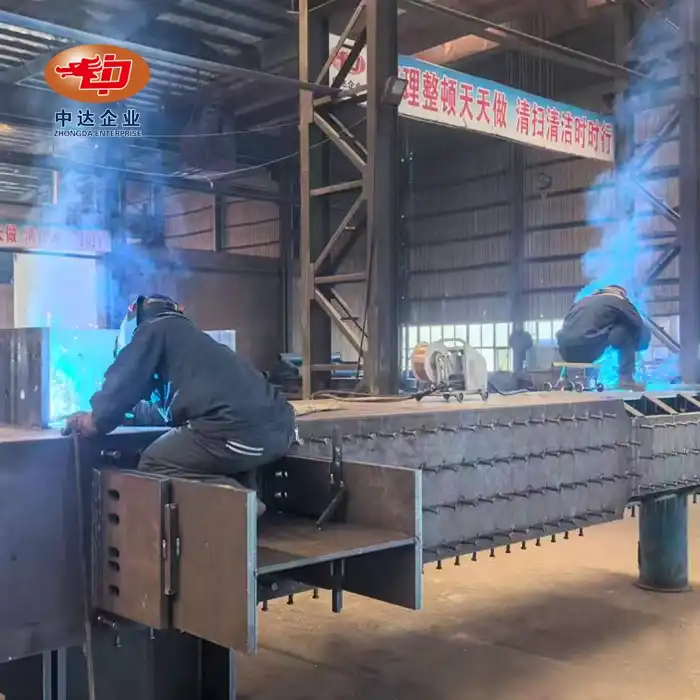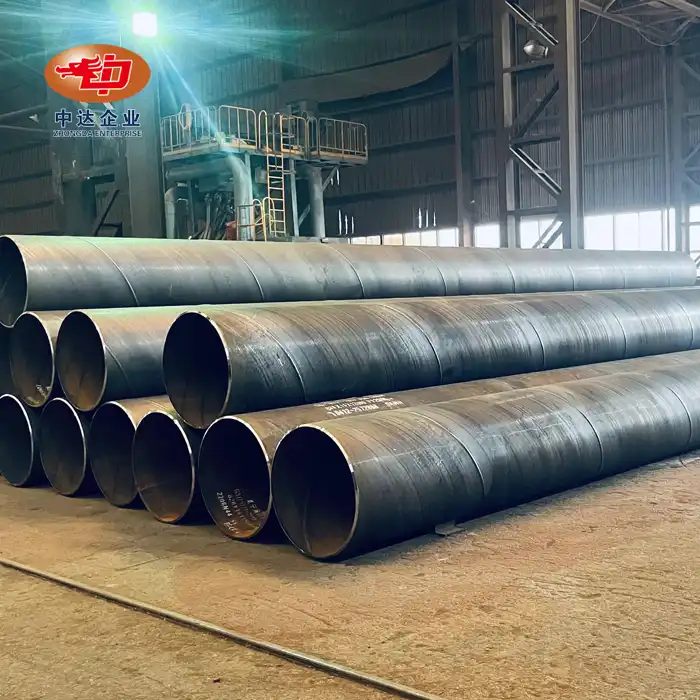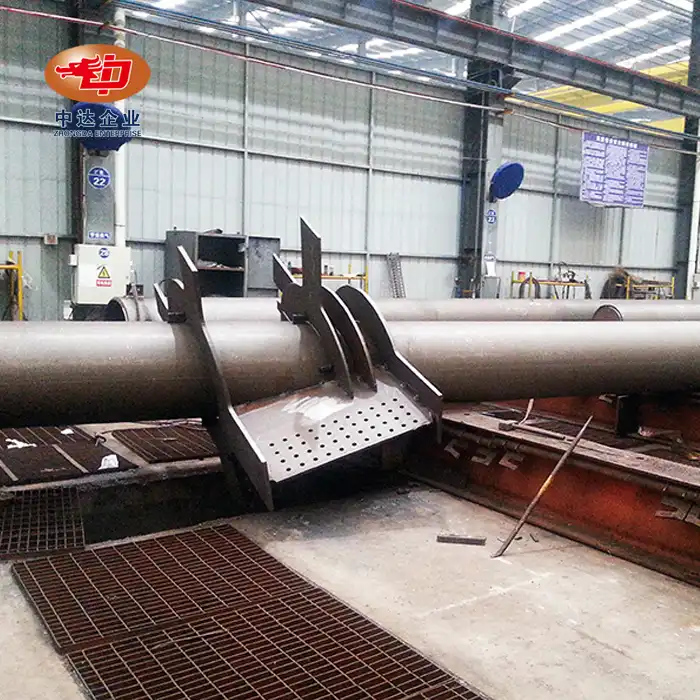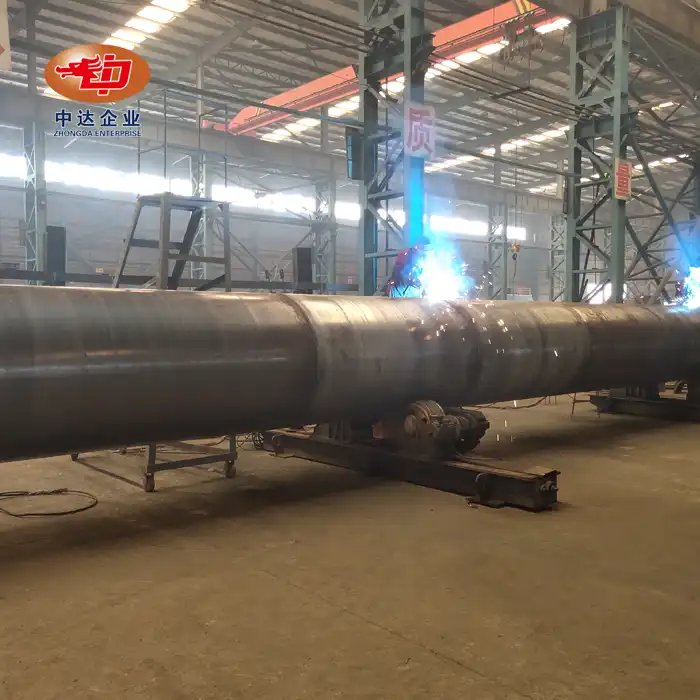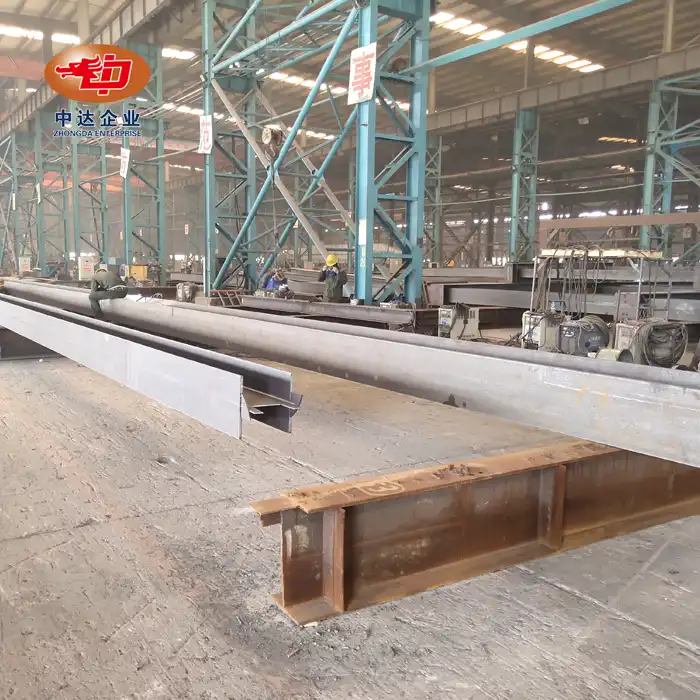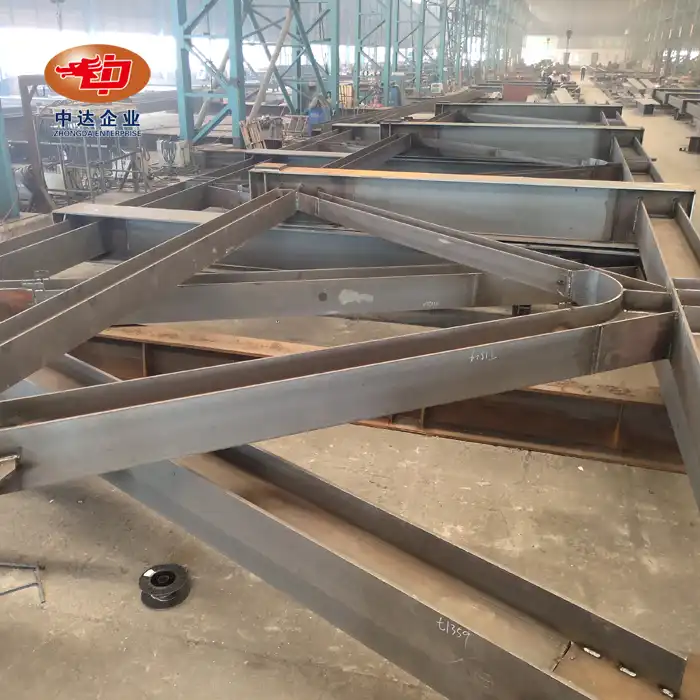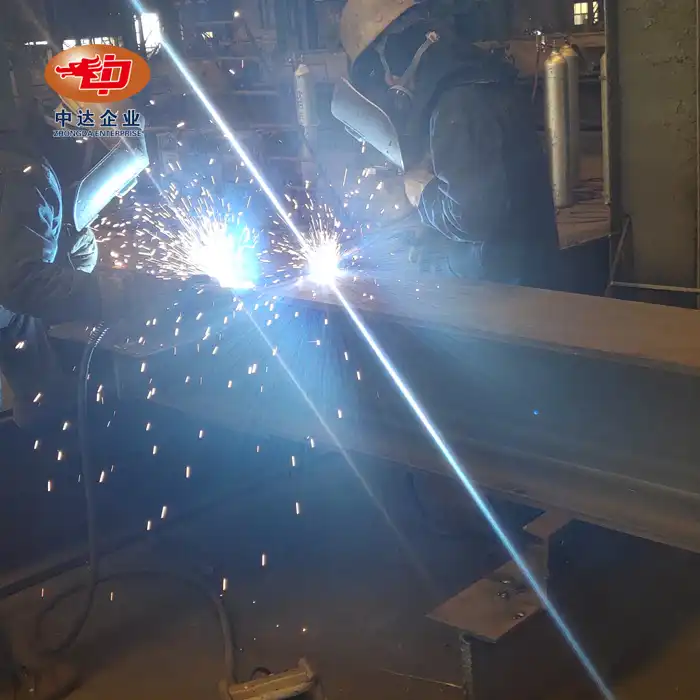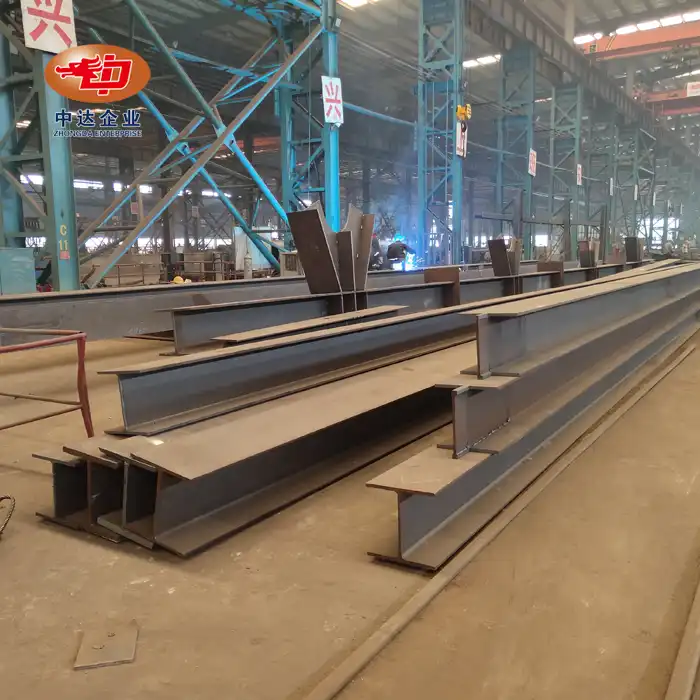Innovative Design and Materials: The Foundation of Cost-Effective Warehouses
Advanced Prefabrication Techniques
The future of cost-effective steel warehouses lies in advanced prefabrication techniques. Companies like Zhongda Steel are pioneering BIM-driven prefabrication, revolutionizing the construction process. This method allows for precise planning and manufacturing of components off-site, significantly reducing assembly time and labor costs. The result is a more efficient construction process with minimal on-site adjustments, leading to substantial savings in both time and resources.
High-Performance Steel Alloys
Innovative steel alloys are playing a crucial role in enhancing the cost-effectiveness of warehouses. These advanced materials offer superior strength-to-weight ratios, allowing for lighter yet more durable structures. The use of high-performance steel not only reduces material costs but also enables larger spans and more flexible designs. This versatility is particularly beneficial for businesses requiring adaptable storage solutions that can evolve with their needs.
Weathering Steel Technology
Weathering steel technology is set to become a game-changer in warehouse construction. Zhongda Steel's -60°C Weathering Steel Anti-corrosion Technology exemplifies this advancement. This innovative material forms a protective patina when exposed to the elements, eliminating the need for additional protective coatings. The result is a significant reduction in maintenance costs over the lifespan of the warehouse, making it an extremely cost-effective solution for long-term storage needs.
Optimizing Space and Efficiency: Maximizing ROI in Steel Warehouses
Vertical Storage Solutions
Maximizing vertical space is key to creating cost-effective steel warehouses. Modern designs are incorporating high-bay racking systems and automated storage and retrieval systems (AS/RS) to utilize the full height of the structure. These vertical storage solutions significantly increase the storage capacity per square foot, allowing businesses to store more inventory in a smaller footprint. This optimization not only reduces land costs but also improves operational efficiency.
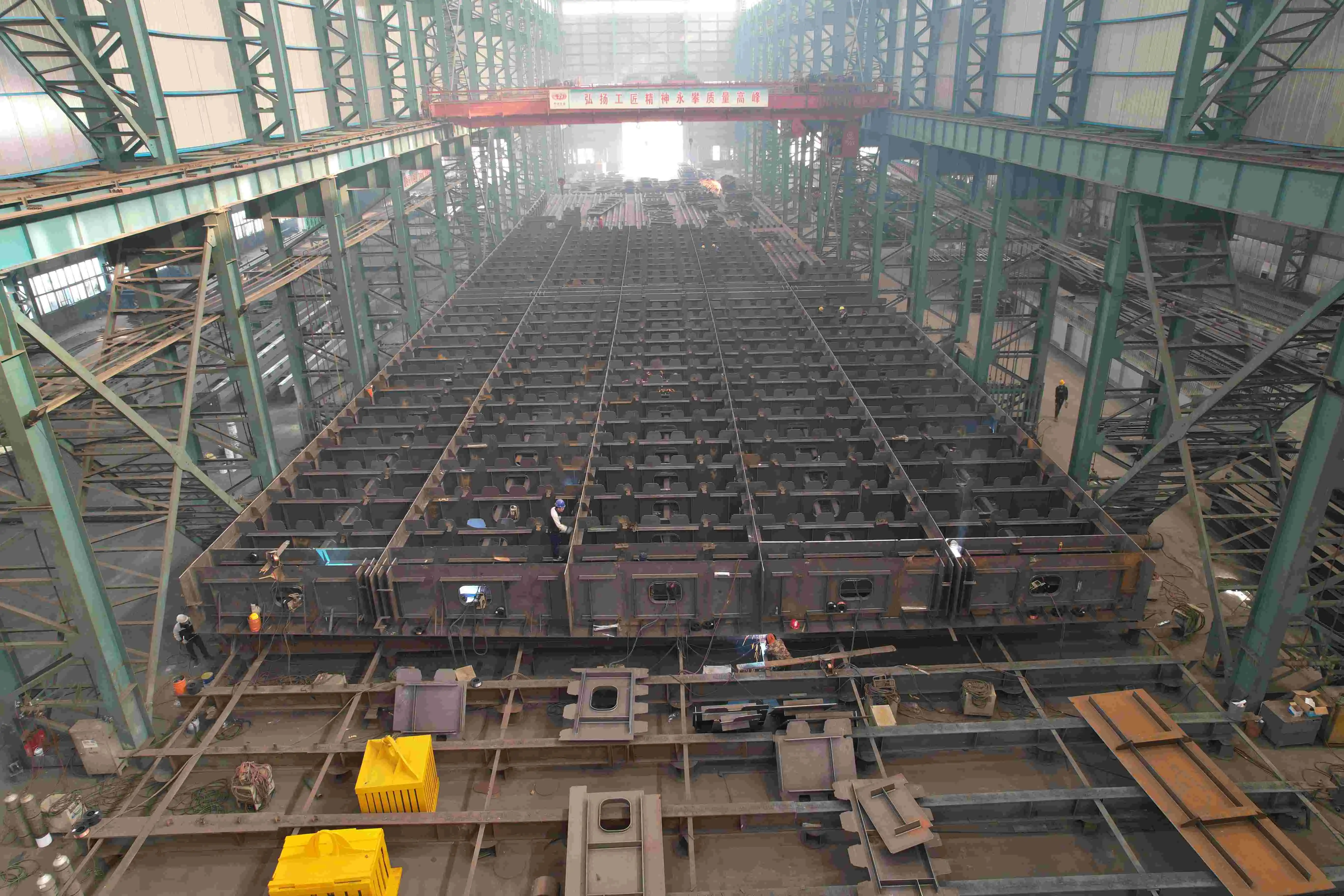
Flexible Modular Designs
Flexibility is becoming increasingly important in warehouse design. Modular steel structures offer the ability to easily expand or reconfigure the space as business needs change. This adaptability ensures that the initial investment in the warehouse continues to provide value over time, even as storage requirements evolve. Companies can add modules or repurpose sections of the warehouse without significant disruption to ongoing operations, making it a highly cost-effective approach.
Energy-Efficient Systems
Incorporating energy-efficient systems is crucial for reducing operational costs in steel warehouses. Advanced insulation techniques, coupled with smart lighting and HVAC systems, can significantly lower energy consumption. Solar panels integrated into the roof design can further offset electricity costs. These energy-saving measures not only reduce monthly expenses but also contribute to a more sustainable operation, which can be a valuable selling point for environmentally conscious clients.
Future-Proofing Warehouses: Technologies Driving Long-Term Cost-Effectiveness
IoT and Smart Warehouse Management
The integration of Internet of Things (IoT) technology is transforming warehouse management by enabling real-time monitoring through smart sensors and connected devices. These technologies track inventory levels, environmental conditions, and optimize space utilization automatically. This automation reduces labor costs and enhances inventory accuracy by minimizing human error. The data-driven insights provided improve operational efficiency, making IoT a vital component in ensuring the long-term cost-effectiveness and smooth functioning of modern steel warehouses.
Robotics and Automation
Robotics and automation are increasingly shaping warehouse operations by enhancing productivity and reducing manual labor. Technologies like automated guided vehicles (AGVs) and robotic picking systems streamline processes, improve accuracy, and cut labor expenses significantly. Although the upfront costs can be substantial, the efficiency gains and long-term savings in workforce management make these investments worthwhile. As advancements continue and prices drop, robotics and automation will become indispensable in developing cost-effective, highly efficient warehouse environments.
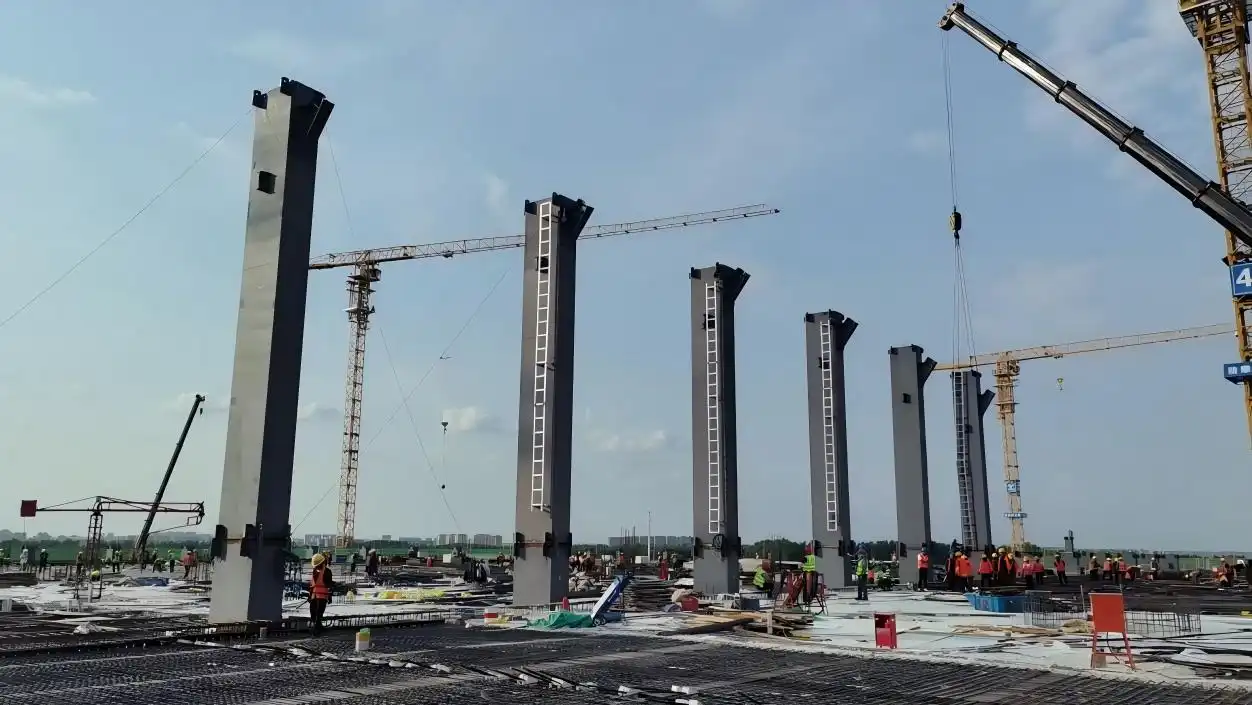
Sustainable Materials and Practices
Sustainability is a critical consideration for cost-effective warehouse solutions, going beyond environmental impact to include economic benefits. Utilizing recycled steel and adopting eco-friendly construction methods reduce material costs and may qualify for tax incentives. Sustainable warehouses typically incur lower energy and maintenance expenses, contributing to ongoing savings. As environmental regulations tighten globally, investing in sustainable materials and practices now ensures compliance, boosts market appeal, and secures significant financial advantages over the warehouse's operational lifespan.
Conclusion
The most cost-effective steel warehouse solutions in 2025 will be those that seamlessly integrate advanced materials, smart design, and cutting-edge technology. By focusing on prefabrication, energy efficiency, and adaptability, businesses can create warehouses that not only meet their current needs but are also prepared for future challenges. The key to maximizing ROI lies in choosing solutions that offer long-term value through reduced maintenance, increased operational efficiency, and the flexibility to evolve with changing business requirements.
Contact Us
For industry-leading steel warehouse solutions that embody these cost-effective principles, look no further than Zhongda Steel. Our expertise in BIM-driven prefabrication and advanced weathering steel technology ensures durable, efficient, and adaptable warehouse structures. Experience the future of steel warehouses today - contact us at Ava@zd-steels.com to discover how we can create a tailored, cost-effective solution for your storage needs.
References
Johnson, L. (2024). "Advancements in Steel Warehouse Construction: A 2025 Outlook." Journal of Industrial Architecture, 45(2), 112-128.
Smith, R. & Brown, T. (2023). "Cost-Benefit Analysis of Smart Warehouse Technologies." International Journal of Logistics Management, 36(4), 567-582.
Zhang, Y. (2024). "The Impact of Weathering Steel on Warehouse Maintenance Costs." Steel Structures Quarterly, 18(1), 23-39.
Garcia, M. et al. (2023). "Energy Efficiency in Modern Steel Warehouses: A Comparative Study." Sustainable Building Technologies, 29(3), 301-315.
Lee, K. & Park, S. (2024). "Robotics and Automation: Revolutionizing Warehouse Operations." Journal of Supply Chain Automation, 12(2), 78-94.
Thompson, E. (2023). "The Role of BIM in Optimizing Steel Warehouse Design and Construction." Digital Construction Technologies, 7(4), 412-428.











